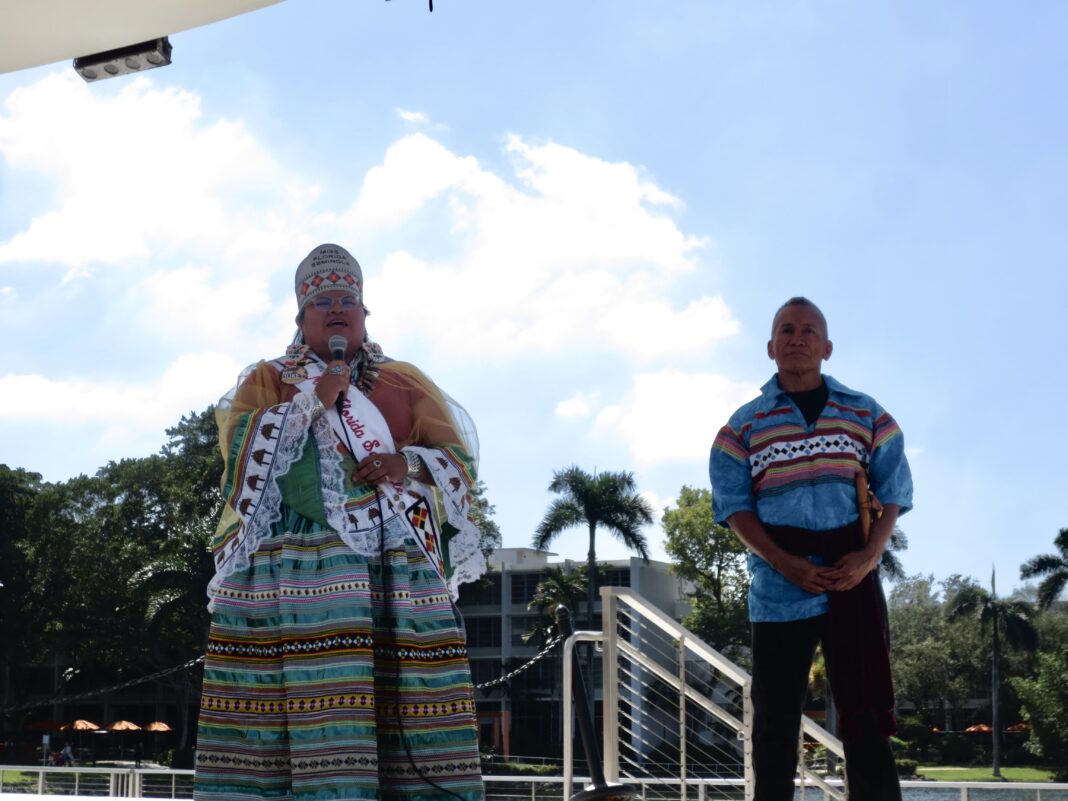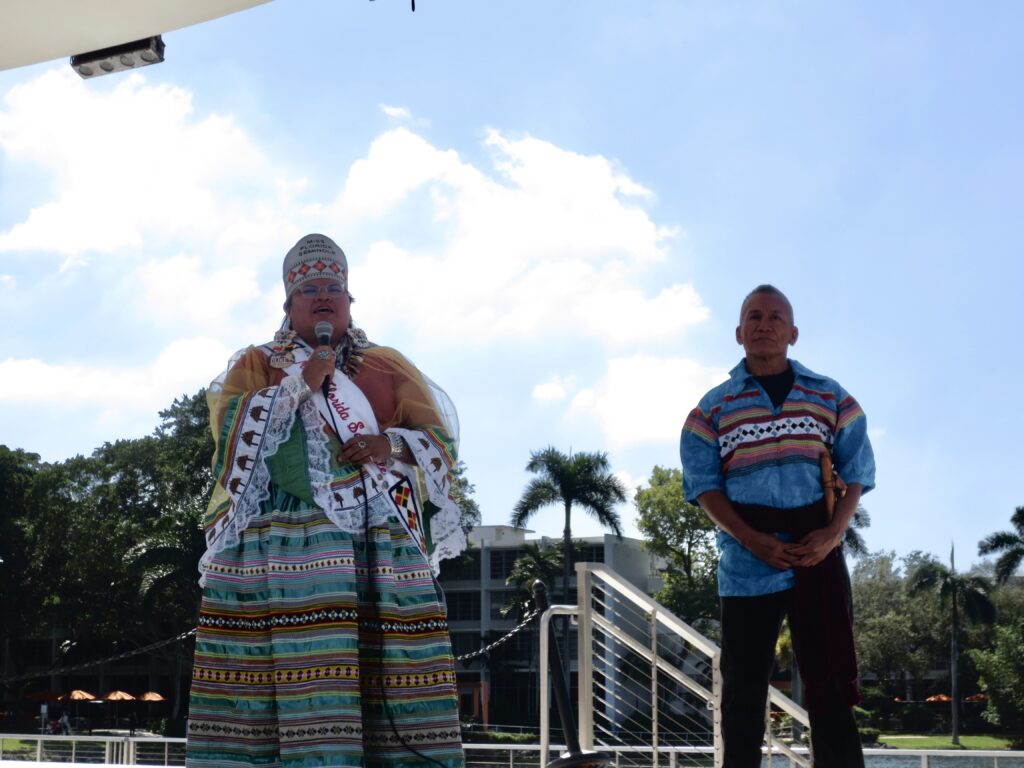

Campus organization Indigecanes honors Native American Heritage Month by amplifying Indigenous voices by raising awareness and hosting events. Founded in 2018, the club highlights the importance of strengthening Native voices to counter how the U.S. education system largely romanticizes Native history.
“[Indigecanes has been] organizing events and bringing in Miccosukee and Seminole folks who are Indigenous to the land the University of Miami stands on to push forward a narrative that has historically tried to be erased from educational systems,” said Keyra Juliana Espinoza Arroyo, a senior ecosystem science and policy major and Indigecanes chair from the Kañari nation.
Indigecanes originated as the Native American Heritage Committee and is working to become officiated. In the meantime, the organization works with the Native American and Global Indigenous Studies (NAGIS) program to create safe spaces for Indigenous students, professors and faculty.
Arroyo detailed how cultural appropriation, cultural extraction and the glamorization of Indigenous people has spread harmful misinformation.
“People grow up in the educational system learning that the Indigenous people and pilgrims were peaceful [towards each other],” Arroyo said. “It’s completely erasing the actual history of the struggles, colonization and genocide that happened to North Native Indigenous people.”
Arroyo urges educational systems to incorporate more indigenous teachers to teach Native American history.
“I would do a collective effort to meet with other indigenous people to have their insight and what they think would be essential to teach the younger generation,” Arroyo said.
She describes the University’s current land acknowledgement as “a foam board that’s literally taped on a dark-lit wall” and urges the University to establish a formal plaque in a visible location on campus.
Another obstacle Indigecanes faces is the presence of Iron Arrow on campus. They feel it works against their mission to promote Indigenous representation. She recalled demeaning phrases directed at her while on campus.
“It’s hurtful to hear all of these things and then see Iron Arrow,” Arroyo said. “You would think it’s only the student body, but there are faculty and staff that also play an important role in this.”
Despite the challenges faced by the Indigenous community on campus, Native American Heritage Month gives Arroyo hope for a greater future.
“When we go out to protests or movements together…it’s just very empowering to see all of us unite,” Arroyo said. “We’re doing all this work for things…that have really dark connotations and it’s very sad, but you can just feel the love when a lot of Indigenous people unite.”
Indigecanes partners with allies and students to fight for greater relations between the University and Indigenous people both on and off campus.
To commemorate Native American Heritage Month, Indigecanes invites students to head to the Seminole Okalee Indian Village and Museum in Broward County to see the annual Pow Wow Marketplace from Thursday, Nov. 16 to Saturday, Nov. 18.
Stay up-to-date on Indigecanes’ events by following their Instagram @indigecanes.





